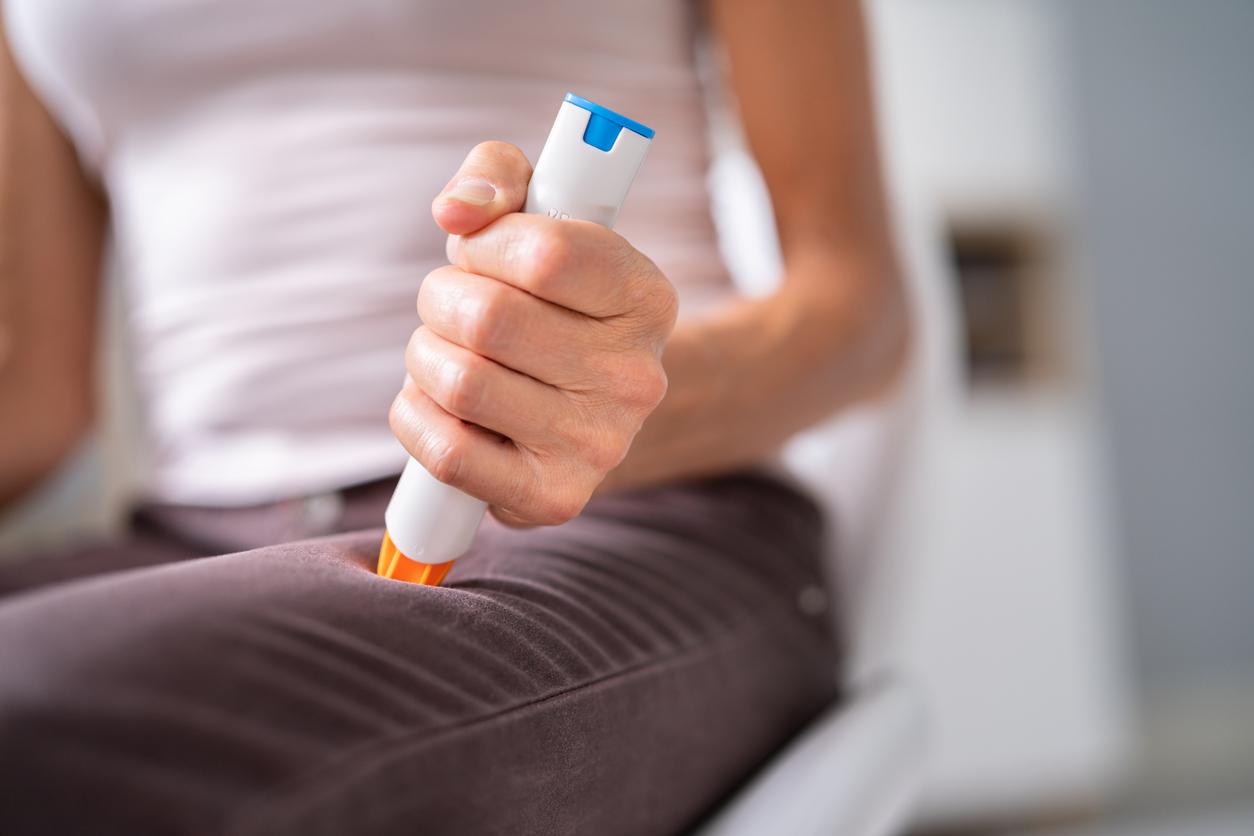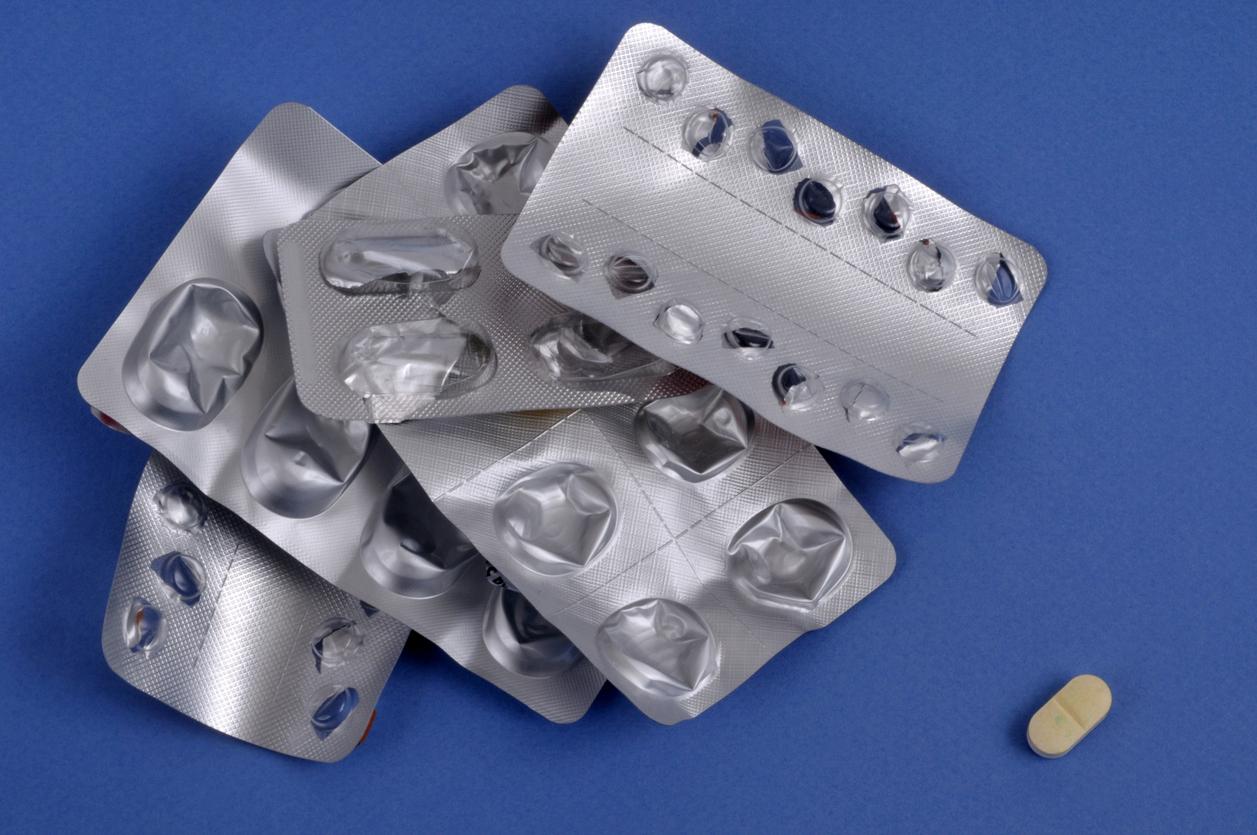The National Medicines Agency warns against the use of sore throat medications containing alpha-amylase, an enzyme that increases the risk of an allergic reaction and can even cause anaphylactic shock.

Available without a prescription, often prominently displayed on pharmacy counters, sore throat medications are not without health risks.
This is what the National Medicines Safety Agency (ANSM) reminds us in a statementwhere she warns against the use of four over-the-counter drugs indicated as adjunctive treatment for mild sore throats without fever: Maxilase Sore throat Alpha-Amylase, Alfa-amylase Biogaran conseil and Alfa- Amylase Top Pharm.
Available in the form of syrup or tablets, these four drugs have the particularity of containing alpha-amylase, an enzyme likely to trigger allergic reactions. “These are mainly skin disorders (urticaria, itching, etc.) but also very rarely serious allergic effects, which can manifest as a drop in blood pressure, breathing difficulties alone or associated with swelling of the face (anaphylactic shocks) ”, details the ANSM in its press release.
Medications to be taken with caution
Will these temporary sore throat medications be withdrawn from sale soon? No, specifies the ANSM, which wishes that they remain available without prescription “but only on request to the pharmacist who, then, will issue all the necessary advice.”
Asked by franceinfo, Dr. Jean-Michel Race, director of medicines in the ENT sphere at the ANSM, also recalls that these alpha-amylase-based medicines are “comfort medicines, which do not cure anything” and that “any symptom does not necessarily require a drug response”. “A sore throat goes away on its own in a few days and, as with a cold, you must above all apply the classic advice of hygiene, hydration and washing your nose”, insists the specialist.
2 severe anaphylactic shocks and one death
This is not the first time that alpha-amylase has been singled out for its allergic risk. In 2013, a 9-year-old child who consumed too much syrup containing this enzyme was hospitalized for severe anaphylactic shock. It happened again in 2017 with a teenager taking pills. A death linked to an allergic reaction to alpha-amylase is also to be deplored: that of a man in his fifties in 2017.
What led the review Prescribe to publish in April 2019 a note in which she advised “to exclude alpha-amylase from care”.


.

















